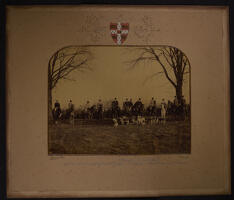Concurs with the views expressed in A3/10/3. The recent reforms were not, like previous measures, a ‘sop to agitation’, but were based on a definite plan, and Indians must realise that they need to earn and work for further steps. To modify the reforms merely because people think them inadequate would destroy the whole basis of the scheme. Commends Chelmsford’s policy of using patience before force, but questions the wisdom of non-interference in cases of threats of violence, violent libels on British officers, seditious statements in newspapers, the preaching of race-hatred, and military drilling. It is idiotic to suggest that enforcement of the law is repression. He has received a letter from Ronaldshay and a report from Price, a member of the Legislative Assembly, to his constituents, and has read with anxiety communications from India in the Daily Telegraph.
(Typed, with handwritten alterations. Used for transmission. Marked '4'.)
